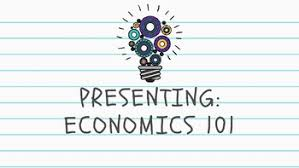
1-2 Unfortunately, the question, which is the headline, is one thing, and the content is something else. But since I have done a lot of research on this and I taught the materials for years, I can see the source of confusion.
#OOTT #Oil
reuters.com/business/energ…
#OOTT #Oil
reuters.com/business/energ…
2- In economics, everything is determined at the margin, therefore, shares and percentages are less relevant, if any. The impact of increasing oil prices depends on the reactions of the governments and central banks. See my pinned thread
3- Oil prices increased drastically between 2004 and 2008… all major economies, including China and India, enjoyed healthy economic growth… Why record oil prices had no impact then? Is conventional wisdom wrong?
4- the idea that every recession was preceded by high oil prices is correct… but get this: every recession was preceded by decline in government spending, higher interest rates, higher taxes, or a combination of them. Theory supports the latter
5- It does not matter whether share of oil in the economy is 15% or 5%. The impact of higher oil prices could be as severe with 5% if the govt & the Fed’s policies are wrong. 15% vs 5% is a matter of energy & national security, but not whether economy can withstand high prices
7- taking oil on its own in the current circumstances is wrong. This is a rare moment in history where prices of all energy sources increased significantly & where some are substitutes for others. Impact of higher ENERGY prices is different from the impact of higher oil prices
8- the impact of higher ENERGY prices on the economy is severe. Government and Fed policies can make it worse or mitigate the impact, but the impact is there simply because of the price effect, the income effect, and the substitution effect.
9- Government policies cannot compensate for all these negative effects at this time. Oil prices are already high. Going to $100 or higher under current circumstances will wreak havoc on the world economy. So, no, global economy cannot handle $100 oil
10- Although this article is old, it has all the major ideas needed to discuss the impact of high oil prices on economic growth
ogel.org/article.asp?ke…
ogel.org/article.asp?ke…
• • •
Missing some Tweet in this thread? You can try to
force a refresh






